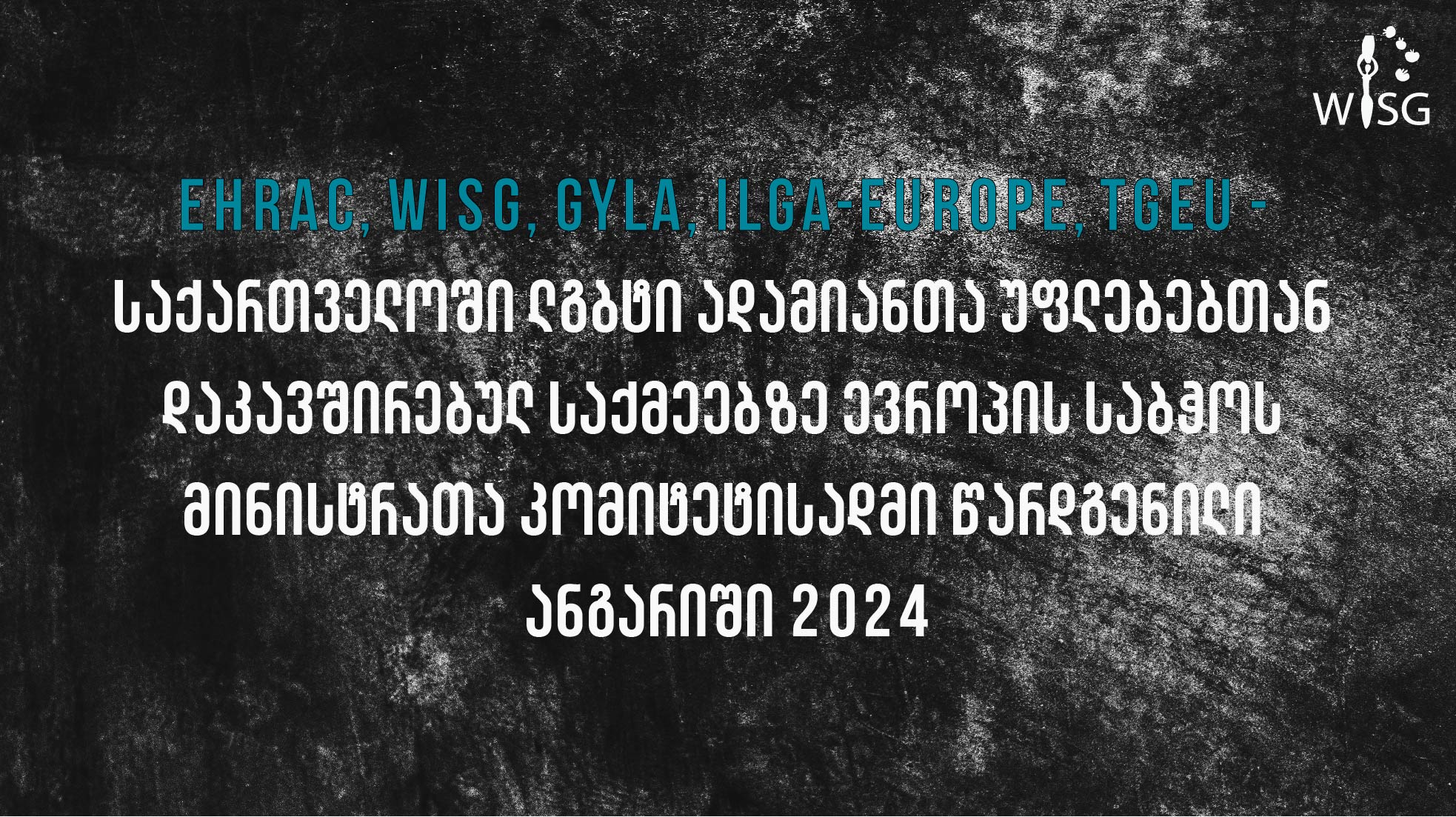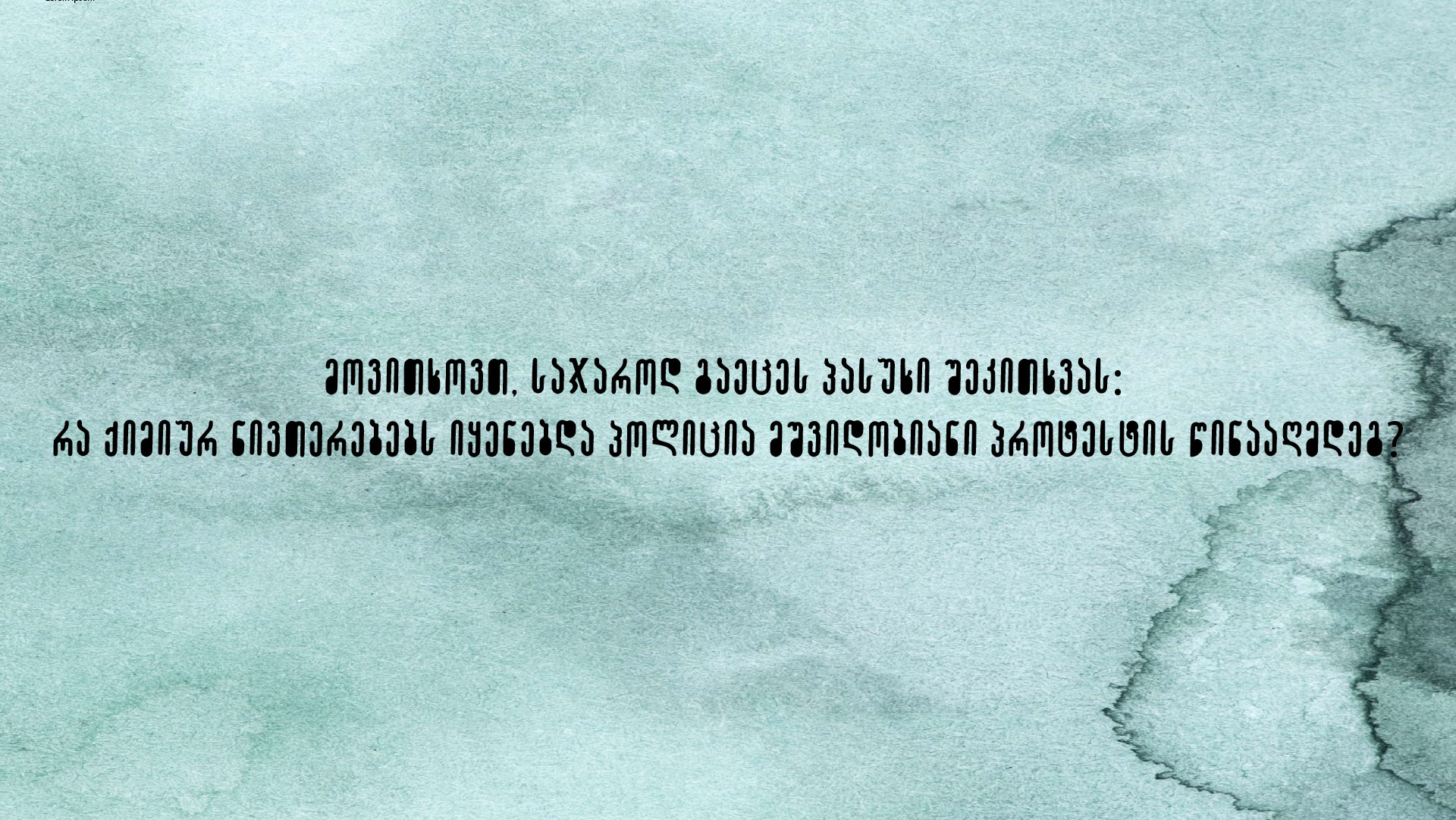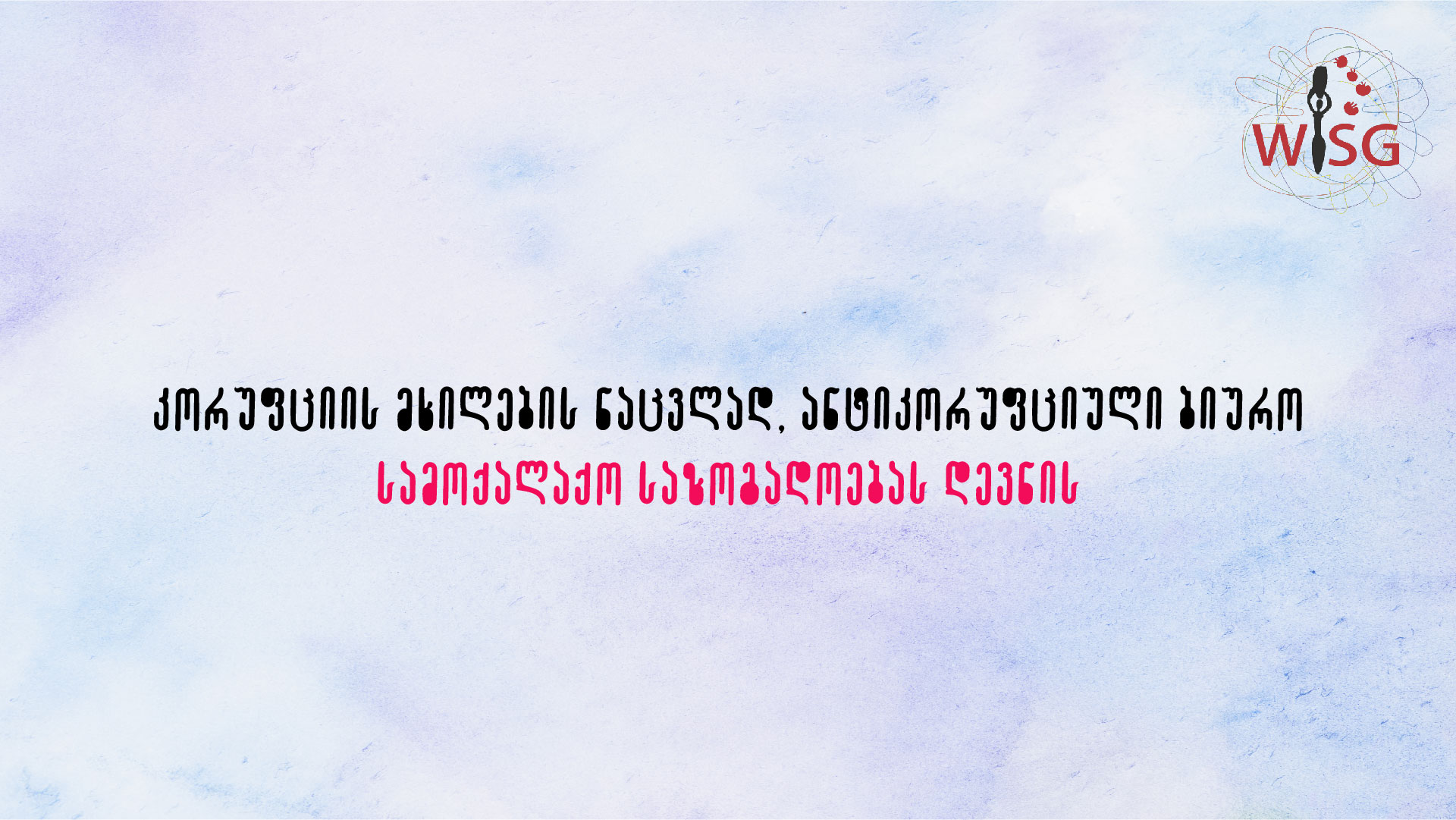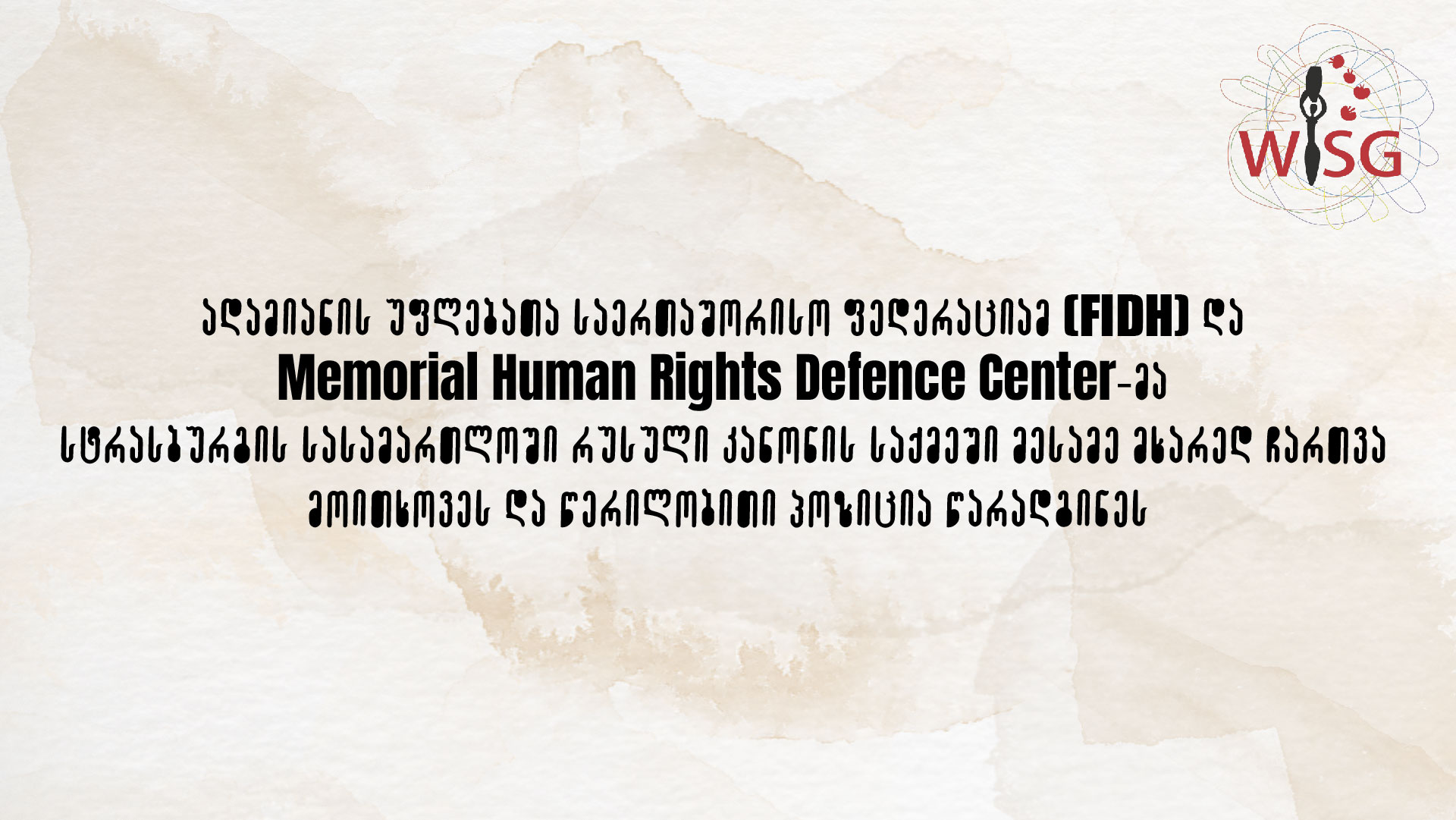The submission, dated August 2, 2024, addresses both individual and general measures mandated by the ECtHR in two key cases: Aghdgomelashvili and Japaridze v. Georgia and Women's Initiatives Supporting Group and Others v. Georgia. These cases involve violations of LGBTI rights, including police misconduct and failure to protect peaceful demonstrators from homophobic and transphobic violence.
The report expresses serious concerns about the effectiveness of investigations into both cases. In Aghdgomelashvili and Japaridze v. Georgia, which concerned a 2009 police raid on an LGBTI organization's office, the investigation has been ongoing for years without tangible results. The authors note that while some investigative actions have been taken, they appear perfunctory and lack urgency. The risk of statutes of limitations expiring on December 15, 2024, adds to the concerns about the government's commitment to justice.
Similarly, in the case of Women's Initiatives Supporting Group and Others v. Georgia, which stemmed from a violent attack on LGBTI demonstrators in 2013, the investigation has dragged on for over a decade without holding any individuals criminally responsible. The report criticizes the belated nature of basic investigative steps and questions the authorities' commitment to addressing the violations identified by the ECtHR.
1. Anti-LGBTI Legislative Initiatives: The authors express deep concern over new constitutional amendments and a draft law "On the Protection of Family Values and Minors" proposed in 2024. These initiatives aim to significantly restrict LGBTI rights, including banning same-sex marriage, adoption by LGBTI individuals, gender-affirming medical procedures, and legal gender recognition. The proposed laws would also curtail freedom of expression and assembly related to LGBTI issues.
2. Inadequate Efforts to Combat Hate Crimes: While the government reports increased training for law enforcement and a rise in hate crime prosecutions, the report questions the sincerity and effectiveness of these measures. The authors point out that recent political developments, such as the proposed "Law on Transparency of Foreign Influence" (dubbed the "Russian law"), have led to a widespread civil society boycott of cooperation with authorities, potentially impacting the delivery of planned training programs.
3. Restrictions on Freedom of Assembly: LGBTI organizations continue to avoid public gatherings due to safety concerns and an escalating climate of intolerance. The report notes that Tbilisi Pride announced it would proceed without physical events for the Georgian queer community in 2024, citing threats to LGBTI rights and advocacy.
4. Persistent Homo/bi/transphobic Attitudes: The authors argue that the government's response to societal discrimination lacks concrete action against root causes. They criticize the absence of specific measures to prevent future violence against the LGBTI community and the lack of high-level, unambiguous condemnation of hate crimes.
The report concludes with a series of recommendations for the Committee of Ministers to consider. These include urging Georgian authorities to conduct effective, timely, and independent investigations into the incidents described in both cases, ensuring appropriate classification of crimes and accountability for perpetrators. The authors also call for the immediate withdrawal of the proposed anti-LGBTI constitutional amendments and draft law, and stress the importance of ensuring that the government fulfills its positive obligation to protect LGBTI persons at events and effectively investigate incidents of violence. Additionally, they recommend the creation of a specialized unit for investigating hate crimes, advise amendments to the Code of Administrative Offences to include discriminatory motives as aggravating factors, and encourage the establishment of a framework for safe and peaceful gatherings of LGBTI activists, including public awareness campaigns and enhanced protection measures. These recommendations aim to address the ongoing challenges faced by the LGBTI community in Georgia and improve the implementation of ECtHR judgments.
The organizations behind this report emphasize the critical nature of these issues and call for urgent action from the Committee of Ministers. They argue that the current situation in Georgia represents a significant backslide in LGBTI rights protection and implementation of ECtHR judgments.
This comprehensive submission provides a stark picture of the challenges facing LGBTI individuals and activists in Georgia. It highlights a troubling disconnect between the government's stated commitments to human rights and the reality on the ground. The report serves as a crucial tool for international bodies to hold Georgia accountable for its obligations under the European Convention on Human Rights and to push for meaningful reforms to protect LGBTI rights. As the situation continues to evolve, the work of these human rights organizations in monitoring and reporting on LGBTI rights in Georgia remains vital. Their efforts contribute to the ongoing struggle for equality, dignity, and justice for LGBTI individuals in the country and serve as a reminder of the importance of international oversight in protecting human rights.







